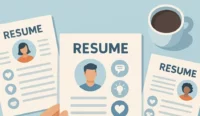Every year, millions of students graduate from colleges and universities across the United States with the hope that their hard work in the classroom will translate directly into career success. Many assume that landing the right job is about having the strongest résumé, the highest GPA, or the most technical expertise.
But according to Kirsten Brewer, CEO of Hydrograph Clean Power in Austin, Texas, the real differentiators in today’s job market are far less obvious. After interviewing countless students, young professionals, and career changers, Brewer has come to a clear conclusion: the qualities that employers truly value are work ethic and likability.
“Being capable and competent is important,” Brewer says, “but more than anything, it’s work ethic and likability. If people like to work with you, if they trust you, and if you show up every day with a strong desire to be your best self, you will nine times out of 10 win against someone that might even be more capable from an intellect perspective but is hard to work with.”
In a world where artificial intelligence is reshaping jobs and competition for opportunities is fiercer than ever, Brewer’s perspective offers both encouragement and a reality check for aspiring professionals. This article breaks down her advice into actionable lessons for students and young job seekers who want to build lasting careers.
The Hidden Power of Work Ethic
When most people picture high achievers, they imagine individuals who are brilliant, innovative, or naturally gifted. Yet in the real world, talent alone rarely guarantees success. Employers consistently report that they value employees who are reliable, consistent, and willing to put in the effort.
Brewer emphasizes that showing up every day ready to do your best work is one of the simplest but most powerful habits a young professional can build. In practice, that means:
- Meeting deadlines even when the task is difficult.
- Going the extra mile to solve a problem rather than waiting for someone else to handle it.
- Demonstrating persistence in the face of setbacks.
Research backs this up. In surveys conducted by the National Association of Colleges and Employers (NACE), “work ethic” and “reliability” consistently rank among the top soft skills employers seek when hiring recent graduates. For many hiring managers, an employee who works hard and follows through is worth far more than one who dazzles with intelligence but can’t be counted on.
Brewer puts it simply: the professional who shows up consistently with effort and focus will almost always outperform the “genius” who can’t be relied on.
Likability: The Career Accelerator Nobody Talks About
If work ethic is the foundation, likability is the accelerator. While rarely discussed in classrooms, likability plays a massive role in hiring decisions, promotions, and long-term career opportunities.
What does “likability” mean in a professional context? It isn’t about being the funniest or most outgoing person in the office. Instead, it’s about qualities such as:
- Trustworthiness — people know they can rely on your word.
- Positivity — maintaining a constructive attitude, even during challenges.
- Collaboration — being willing to share credit and help teammates succeed.
- Respect — treating colleagues and clients with professionalism.
“Like in the real world, the people that we want to work with are going to be the teammates that are going to build everyone up together,” Brewer explains.
This insight aligns with how promotions and leadership selections often unfold. In many organizations, when managers are deciding who should lead a project or step into a supervisory role, the tie-breaker is not technical knowledge but interpersonal skills. Someone who is trusted and liked by their peers is seen as a safer and stronger choice than someone who might be brilliant but alienates their team.
In short: likability opens doors that raw skills alone often cannot.
Why Culture Is a Competitive Advantage
Brewer also underscores the importance of workplace culture. At Hydrograph Clean Power, as in many modern companies, culture is not an afterthought — it’s a strategic priority.
“Culture is extremely important,” Brewer says.
A strong culture fosters collaboration, innovation, and loyalty. By contrast, toxic cultures can erode productivity, increase turnover, and damage a company’s reputation. That’s why so many employers now hire not only for skills but also for “culture fit” and, increasingly, “culture add.” They want people who will strengthen the overall team dynamic.
For students and young professionals, this means your behavior, attitude, and values matter just as much as your technical abilities. When you demonstrate that you can contribute positively to a company’s culture — whether through collaboration, creativity, or professionalism — you become a far more attractive hire.
What Students and Early-Career Professionals Can Do
So how can you, as a student or young job seeker, put Brewer’s advice into practice? Here are actionable steps:
- Show Your Work Ethic Early
- Treat every internship, part-time job, or project as if it were a full-time professional role.
- Be on time, meet deadlines, and volunteer for challenging tasks.
- Practice Likability in Small Interactions
- Respond to emails promptly and respectfully.
- Offer help to peers without expecting immediate returns.
- Listen actively during meetings or classes.
- Highlight Teamwork in Interviews
- Prepare stories that show how you collaborated effectively, solved problems as part of a group, or supported a teammate.
- Network with Humility and Positivity
- Approach networking not as a transaction but as a relationship-building exercise.
- Ask questions, show genuine curiosity, and follow up with gratitude.
- Seek Feedback and Apply It
- One of the easiest ways to demonstrate likability and growth potential is by asking mentors and managers how you can improve — and then applying their advice.
These small, daily actions add up to a professional reputation that will carry you further than technical credentials alone.
Balancing Skills and Soft Skills
Of course, Brewer does not dismiss the importance of technical competence. Being “capable and competent” is still the foundation of career success. Employers need to know you can actually do the work.
But in an age where AI is automating many technical tasks, soft skills have never been more valuable. Creativity, adaptability, leadership, and interpersonal skills are much harder for machines to replicate.
Brewer’s advice reflects a broader trend: companies are no longer hiring just for résumés. They are hiring whole people — individuals who bring both the necessary technical skills and the human qualities that foster trust, innovation, and collaboration.
This balance between hard and soft skills is what will make graduates and young professionals resilient in a fast-changing labor market.
Conclusion
Kirsten Brewer’s message is clear: raw intellect may open doors, but work ethic and likability are what keep those doors open — and unlock even bigger opportunities in the future.
Being the smartest person in the room is not enough if people don’t want to work with you. Instead, lasting success is built on consistency, trust, and the ability to lift others up while doing your best work.
For students and young professionals navigating a challenging job market, the takeaway is simple but powerful:
- Show up with determination.
- Build genuine, positive relationships.
- Contribute to a healthy, collaborative culture.
Do these things, and you won’t just get hired — you’ll build a career that grows stronger year after year.
As Brewer puts it: “In the real world, the people we want to work with are the teammates who build everyone up together.”






